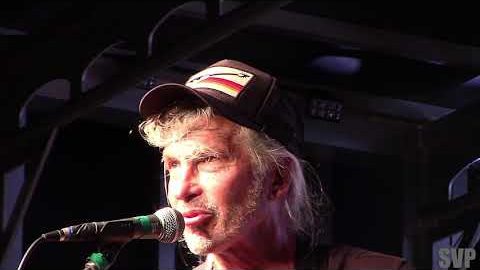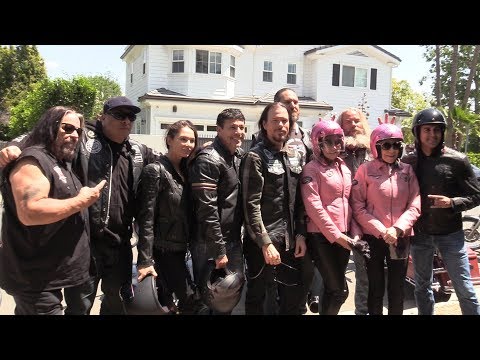
When COVID-19 struck four years ago, filmmaker Michael Winterbottom didn’t spends his days baking banana bread. The man behind Factory Records biopic 24 Hour Party People and popular sitcom The Trip, among many others, began working on a book about his fellow British directors. For Dark Matter: Independent Filmmaking In The 21st Century, Winterbottom spoke to the likes of Lynne Ramsay (We Need To Talk About Kevin), Asif Kapadia (Amy) and Joanna Hogg (The Souvenir). “We interviewed 15 for the book,” he says. “And probably two thirds have never made more than three or four films in this country.”
Sitting on a sofa in the London offices of Revolution Films – the company he founded with producer Andrew Eaton 30 years ago – Winterbottom stops his fast-talking stream-of-consciousness and sighs. “Go back 50 years, they’d have made a film a year – 15, 20 films, and now people are able to make one film every few years.” Call it the curse of the British independent film industry. “It’s a shame that people who have that success…it’s a bit like then they’re expected to do something else. Rather than actually just been given space to [make movies].”
Winterbottom is the exception that proves the rule over here. Like the British equivalent of the prolific American director Steven Soderbergh, the 62-year-old from Blackburn has worked consistently – and frequently – in television and film since the late ’80s. Documentaries, TV mini-series, sitcoms – it seems there isn’t a style he hasn’t tried and conquered. Even his 20-plus features span the gamut, from sci-fi (Code 46) to satire (Greed), from period (The Claim, Jude) to political (In This World, The Road to Guantanamo).

In his time, Winterbottom has flirted with controversy, whether it’s the ultra-violent Jim Thompson adaptation The Killer Inside Me (2010), with Casey Affleck, or the sexually-charged 9 Songs (2004), which featured unsimulated intercourse between its two leads. Interspersed with the titular live renditions, all recorded at Brixton Academy, by Black Rebel Motorcycle Club, Franz Ferdinand, Elbow, The Dandy Warhols and others, it’s still one of the most sexually explicit movies ever passed by the British censors.
Music has frequently been instrumental to his movies, notably 2017’s On The Road – the story of two (fictional) lovers who are also part of the tour crew for Scottish band Wolf Alice, a cunning way of folding narrative into concert footage. Then there was 2002’s 24 Hour Party People, the first of seven collaborations with Steve Coogan, who smashed it as Factory Records co-founder Tony Wilson. “I love Factory Records, I love the Hacienda, I love Tony Wilson,” Winterbottom grins. “At the end, Tony Wilson is exactly the same as he is in the beginning – he’s learnt nothing. In a perfect world, he would’ve just done it all over again.”
Now for the first time since 2019’s Greed, his sharp prod at a Philip Green-like billionaire, Winterbottom is back with Shoshana. Inspired by real events, the film stars Russian actress Irina Starshenbaum (from 2018 rock ’n’ roll Russian movie Leto) as Shoshana Borochov, a left-leaning newspaper journalist living in Tel Aviv in the 1930s. Despite ties to underground Jewish groups, she becomes romantically involved with Tom Wilkin (Douglas Booth), an assistant superintendent with the British Palestine Police.

The idea began when Winterbottom visited the Jerusalem Film Festival in 2008, when he received an Achievement Award for his already blossoming body of work. “I was there for a few days, because they were showing a few of our films, and read a book called One Palestine, Complete, by an Israeli historian [Tom Segev]. And it’s a very good book about the British Mandate era between two world wars. And that era… I didn’t really know anything about. It seemed like a really interesting time. So we started doing research.”
With the project bubbling away for all these years, it’s “been a long process,” says Winterbottom, who initially wanted to look at the time period from the viewpoint of the British as an occupying power. “Then obviously, when we came across the story of Shoshana and Tom, it became a kind of classic love story. In a way Romeo and Juliet, where you have two opposing forces – the British, as the occupiers, and the Jewish community in Tel Aviv trying to achieve what they wanted, trying to build Israel.”
The recent horrifying events in the Middle East – Palestinian group Hamas launching an attack on Israeli soil on October 7, Israel’s ongoing assault in Gaza – coincided exactly with the British premiere of Shoshana at the 2023 London Film Festival. “What was happening was shocking,” says Winterbottom. “Obviously what happened on that day was terrible, a terrible atrocity. And what’s been happening since is also terrible in terms of thousands of people losing their lives. So it’s hard to be optimistic at a time of violence. Obviously, the war is going on, a lot of people losing their lives. And it’s a crisis.”
“I don’t think the message is problematic in the film”
He cites the 2009 documentary he made with Naomi Klein, The Shock Doctrine, which investigated capitalism and how it feeds on natural disasters, war and terror. “She quoted [American economist] Milton Friedman: every crisis is an opportunity. So if you wanted to try and find a positive aspect… because it is such a crisis, because obviously what’s happening now is so intense, that perhaps there is an opportunity to reset afterwards. If you wanted optimism, you had to say, well, people should try and take advantage of the crisis to think about what a new settlement is after the war.”
How does he feel about the film now, in light of recent events? “In some ways, I think it’s more relevant now,” he nods. “If you want to have a moral for the film… political violence is bad. Political violence destroys people – and drives people apart. To have a political argument and be able to disagree with someone and try and find a way through… that is what the film is about. As opposed to violence. So in a sense, I don’t think the message is problematic in the film. It’s probably more relevant now. Obviously, we’re in a situation where there’s violence in Gaza, violence in Israel… and then when you’re doing a film about violence as well, people are hyper-sensitised to it.”

Away from the complexities of the politically-charged subject matter, Winterbottom admits it felt good to come back to making a feature – something he’s done so consistently ever since his 1995 lesbian road movie Butterfly Kiss. “I mean, it’s quite weird because we have been wanting to make this for so long,” admits the director, whose industrious work-rate is well-regimented. “We normally do one thing a year… it’s nice to make one thing a year if you can.”
While Shoshana is the result of 15 years’ worth of work, on and off, Winterbottom is more than capable of the opposite, pumping something out as if it was ripped from the headlines. During COVID, when he wasn’t interviewing filmmakers for his book, he was working on This England, his six-part Sky Atlantic show about the British government’s early response (or lack thereof) to the spread of the virus. After talking to doctors, politicians and scientists, it felt “almost like real-time research about what’s happening now”, says Winterbottom.
“We spent months and months and months trying to get into hospitals. And we had hospitals wanting to let us in, but the NHS was that hyper paranoid about what message would come out,” he reveals. Making the show in a semi-documentary style, Kenneth Branagh inhabited the role of bumbling PM, Boris Johnson – although it was a portrayal that failed to please all the critics. “I think some people wanted it to be more aggressive to Boris.” Curiously, “When we’re making it, people were worried we were going to be too hostile to Boris.”
“Steve Coogan and Rob Brydon always wanted to do ‘The Trip’ in America”
One thing Winterbottom is adamant about is The Trip. One of his most popular works, the BBC show starred Coogan and fellow comedian Rob Brydon as exaggerated versions of themselves, as they review restaurants, swap impersonations and play a never-ending game of one-upmanship. After series set in England, Italy, Spain and Greece, that’s it, says Winterbottom. “I don’t think any more Trips. Steve and Rob were always keen on America but it’s too big!” he says. “I think it’d be better to go smaller. Wales for Rob! But no, there’s no more Trips.”
Instead, he’ll be moving onto another period drama – an adaptation of Ernest Hemmingway’s A Farewell To Arms. The story of Frederic Henry, an American stretcher-bearer serving in the Italian army, Winterbottom can’t quite believe he’s going to be making two historical movies one after the other. “I mean, it’s a bit perverse in a way because I think making period films is always difficult. So having just done one… to try and get life and energy and a sense of spontaneity, I guess, into a period film is always complicated.”
Winterbottom has already snagged his lead, Tom Blyth, the English actor who recently starred in The Hunger Games prequel, The Ballad Of Songbirds & Snakes. The plan will be to shoot in Italy later in the year. “The idea right now is to keep it as fresh and direct and simple as possible. Shooting the same way… as if we’re doing a film in Ukraine, about people fighting in Ukraine,” says Winterbottom. “It’s very much his story… there’s not massive battles, it’s more about the chaos of retreat. So it’s really going to be following him through his experience.”
Certainly, it will keep up Winterbottom’s remarkable productivity – unlike so many of his peers that he interviewed – in an industry where so much has changed since he started out. “Obviously, things change quite a lot. And the films have changed. But the process of making is very similar. I did [1994’s] Family in Ireland – four hours for TV – and that was quite similar to doing Boris [in This England] now. The technology changed a little bit, but the process is still incredibly similar.” If only every director could keep up with him.
‘Shoshana’ opens in UK cinemas on February 23
The post Michael Winterbottom on the terrible relevance of ‘Shoshana’: “Political violence destroys people” appeared first on NME.









